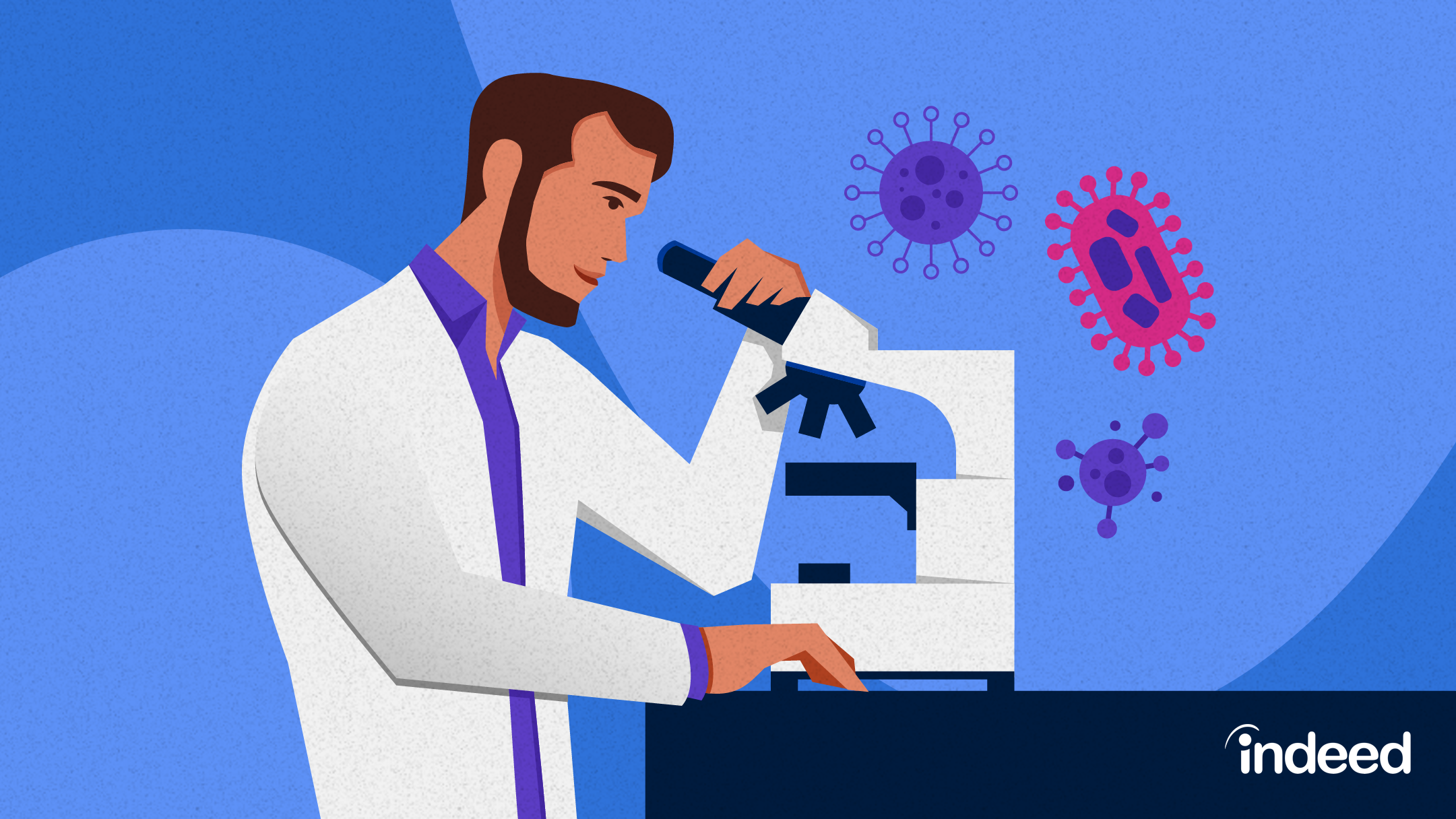Antwort What is the highest degree in microbiology? Weitere Antworten – Which field of microbiology is best
18 microbiology careers to consider
- Biotechnologist.
- Business analyst.
- Brewer.
- Clinical laboratory scientist.
- Ecologist.
- Food technologist.
- Infectious disease physician.
- Laboratory supervisor.
Apart from that, there are Top Biotech companies in India also which pay good salaries. Choose B.Sc. Microbiology if you are specifically interested in microbes and want to know what effects they have on the environment. It is a more specific and narrow domain than Biotechnology.I would assume that a general MSc is going to better prepare you for going into academia. An MSc in applied microbiology is going to focus more on the biotech aspects and potential of microbes.
Why are you interested in microbiology : Microbiology is an excellent major for undergraduate students who want a good general education with emphasis on an important and interesting branch of biology. Microbiology is also an excellent preparatory major for students interested in medical, dental and other health professional training.
What is the highest position in microbiology
Clinical Research Scientist is the highest in demand job position amongst Microbiology graduates.
Which microbiologist has highest salary : Salary of a Microbiologist: Job Profile Wise
| Job Profile | Average Annual Salary (INR) |
|---|---|
| Biomedical Scientist | 7.30 L |
| Food Technologist | 4.00 L |
| Industrial Microbiologist | 5.90 L |
| clinical & Veterinary Microbiologist | 3.06 L |
The Doctor of Philosophy (Ph. D.) is the highest degree offered by the Microbiology Graduate Program (MGP). The goal of our doctoral program is to provide students with the foundation necessary to pursue a career in a university, industry or research institute setting.
A Microbiology in your area makes on average $3,770 per month, or $111 (30.291%) more than the national average monthly salary of $3,659.
Can I do Phd in microbiology
Eligibility. Bachelor's degree in Microbiology / Biotechnology/ Botany/ Biochemistry/B.Sc., MLT/ Zoology/ or in any other branch of Life Sciences with a minimum of 55% of marks For admission to the Ph. D program, UGC/CSIR- NET qualified students are directly admitted to the program.Salary of a Microbiologist: Country Wise
| Country | Average Annual Salary (INR) |
|---|---|
| Canada | 40.48 L |
| Germany | 33.43 L |
| France | 41.43 L |
| Japan | 42.05 L |
Microbiology study is a lucrative route into science. A Microbiology degree can open up a number of career paths. Jobs related to a microbiology degree include: Biomedical Scientist.
Microbiology is also a great preparation major for individuals interested in pursuing medical, dentistry, or other health-related careers. What is Microbiology All microscopic living creatures (Bacteria, viruses, fungi, protozoa, and algae) are studied in microbiology.
What is the highest paid microbiologist : Microbiologist Salary
| Annual Salary | Monthly Pay | |
|---|---|---|
| Top Earners | $109,000 | $9,083 |
| 75th Percentile | $83,000 | $6,916 |
| Average | $70,647 | $5,887 |
| 25th Percentile | $51,500 | $4,291 |
Who is the king of microbiology : Leeuwenhoek is universally acknowledged as the father of microbiology. He discovered both protists and bacteria [1].
Should I get a masters or PhD in microbiology
These scientists study living entities and their chemical and physical processes, including the study of such processes as heredity and disease. Although a PhD is required for many positions, a master's is often sufficient for entry-level spots.
A research degree in microbiology can lead to a variety of career paths and jobs, so microbiologists can be found in a wide range of industries. The lab work nature of most PhD programmes equips you with the necessary skills for the research and development industry.A number of countries, Such as the United States, the United Kingdom, Canada, Australia, and more have esteemed universities known for offering excellent microbiology programs. These prestigious universities provide cutting-edge research opportunities, state-of-the-art facilities with world-class faculty.
How many years is PhD in microbiology : five to six years
usually requires five to six years. The program of study is designed by the student and his or her advisory committee to provide a broad foundation in microbiology, preparing the student for a career in research and/or teaching in academia, industry, or the government.




